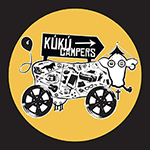Iceland: History, People, Economy, Fun facts and more
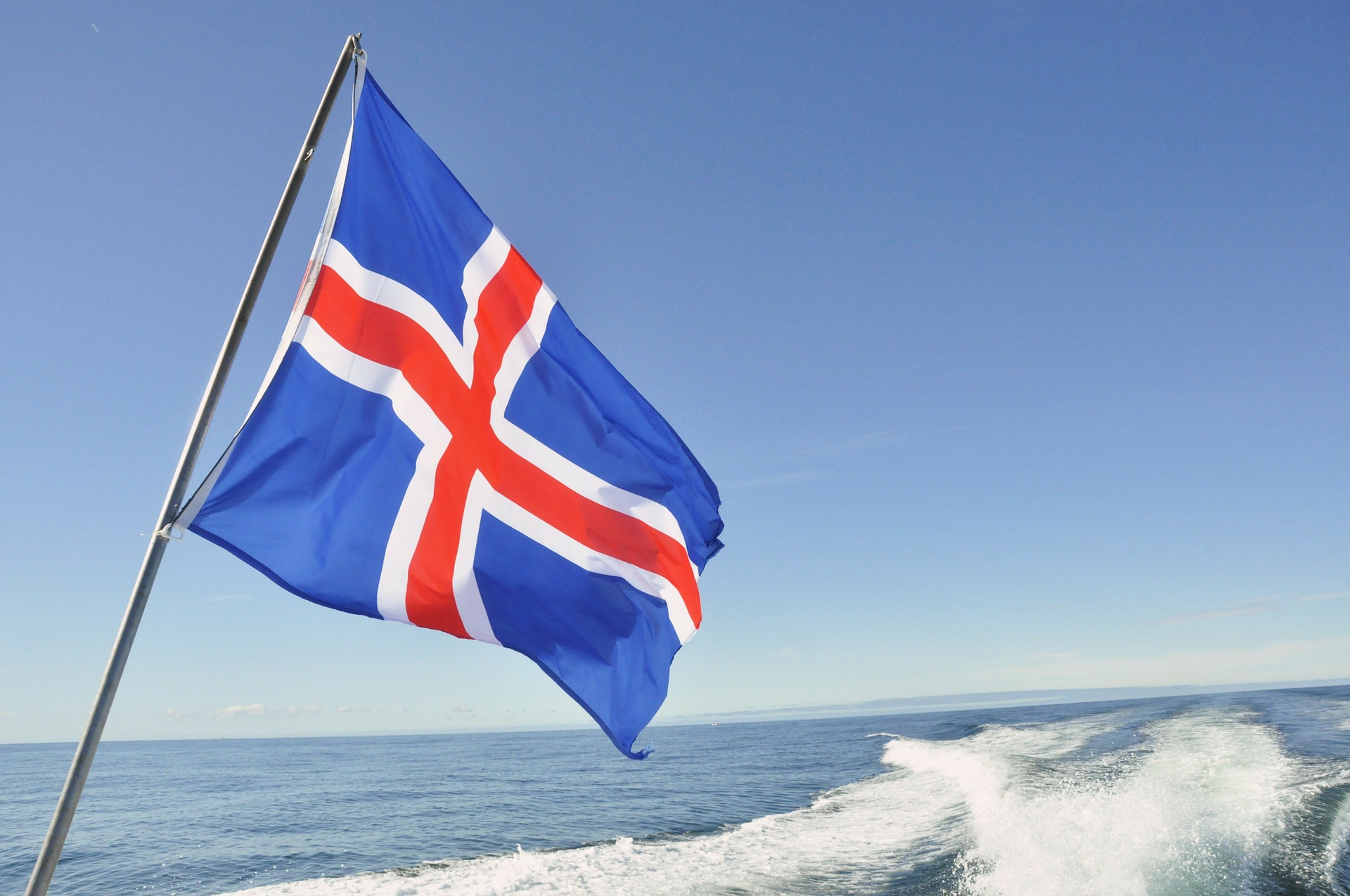
INTRODUCING ICELAND
Iceland is a country full of treasures, filled with beautiful natural landscapes and picturesque cities. Are you are planning for a campervan trip to Iceland? Or do you just want to know more about the land of ice and fire? This article is for you.
This is our complete guide for Iceland.
What’s the size of Iceland? How many people live here? What language do they speak? What money do they use? Is it even safe to be here? Just read below you’ll get all the answers!
Believe me, after reading this you’ll be looking for the next flight to come into our amazing country. Just follow me my friend for a trip that you will never forget.
Once upon a time in the land of Ice and Fire...
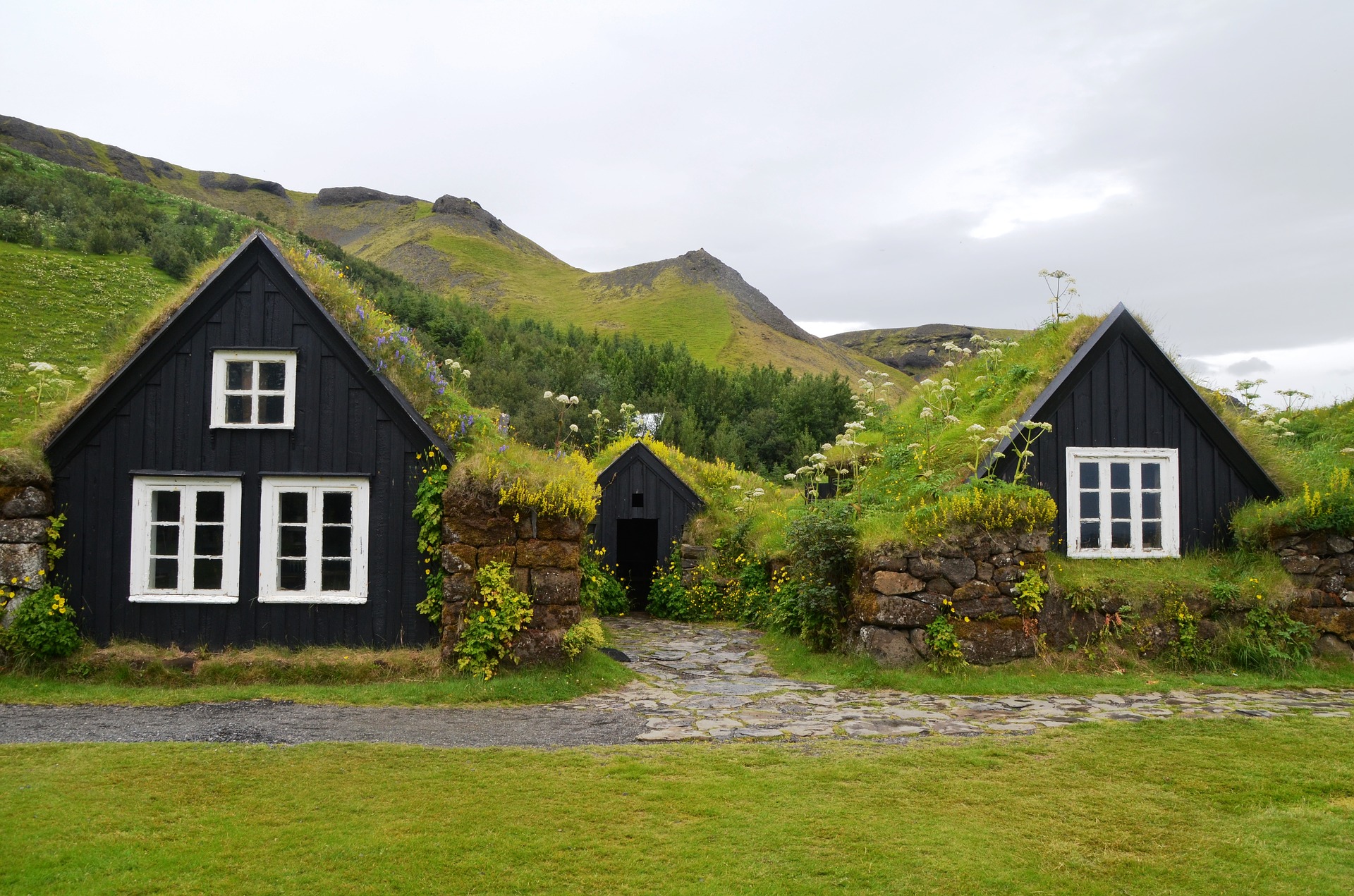 Photo: Skogar museum in south Iceland, close to Vik
Photo: Skogar museum in south Iceland, close to Vik
Let’s start in the beginning…
First, the Vikings
They arrived here more than 1100 years ago, in the late 9th century. Vikings are known as being the first settlers of Iceland. The human history of Iceland is not very long but rich in great events.
In fact, Irish monks were already here when the north men arrived. But decided to leave the country because they didn’t want to share the country with heathens. With time, more and more nordic families settled on this island with their clan members and slaves. They were mainly coming from Norway and the British Isles.
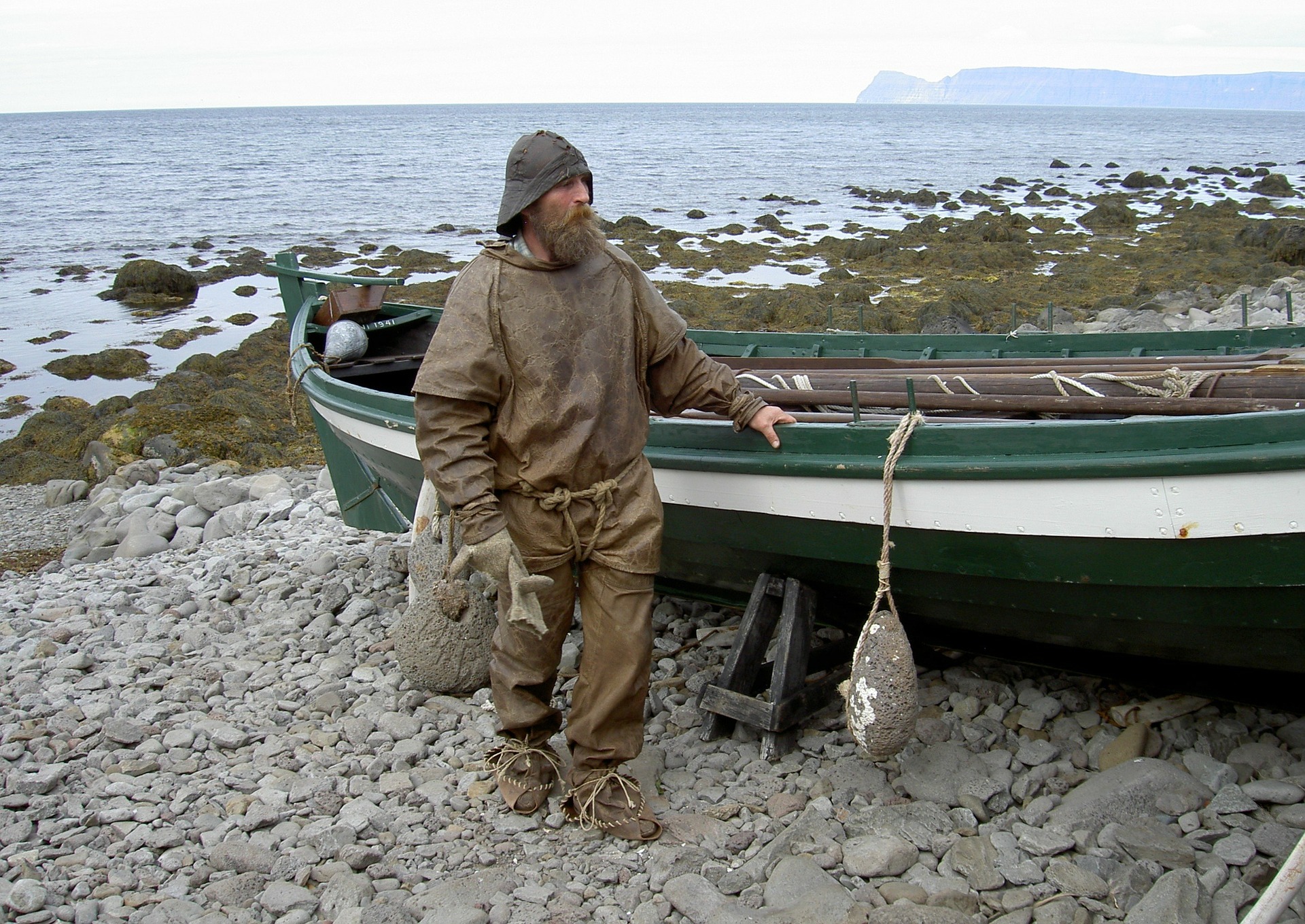 Photo: Iceland History - How fishermen looked like during the settlement of Iceland.
Photo: Iceland History - How fishermen looked like during the settlement of Iceland.
Then, the gathering
In 930, chieftains gathered to create a parliament, the Althingi, in a place called Thingvellir. It means the fields of parliament. This parliament is the oldest still existing parliament in the world. It was moved from Thingvellir to Reykjavik in the 19th century.
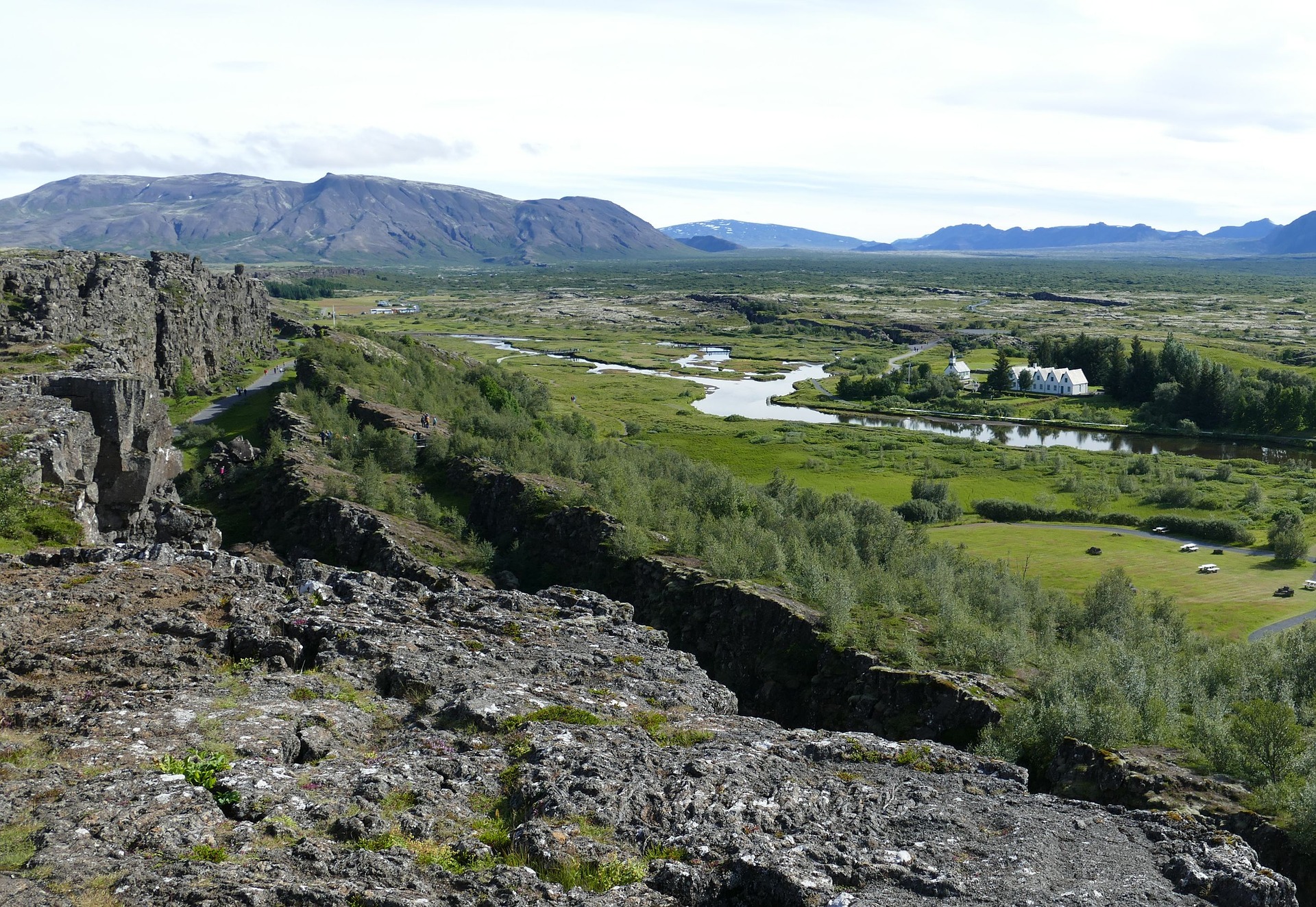 Photo: Thingvellir, where the Althingi was created, is now a national park.
Photo: Thingvellir, where the Althingi was created, is now a national park.
Interesting fact
Thingvellir is where the North American and Eurasian tectonic plates are drifting apart. Meaning that you can cross two continents with a single step!
More recently
This majestic island also went through dark days when the island was under Danish rule. The Denmark Kingdom took the upper hand on it after the dissolution of the Kalmar Union. The union was created by the initiative of the Queen of Denmark, who was the wife of the Norwegian King.
During those times Iceland could only make commercial exchanges with Denmark. This led the country to poverty and the decline of the population. Iceland finally took its sovereignty back, in 1918. And therefore became the Kingdom of Iceland, in union with the Danish Kingdom.
In 1783, the volcano called Laki erupted, this was one of the greatest eruptions in Iceland's history. Lava was going out of the craters for 5 months. And the eruption was so enormous that it was raining ashes in the UK.
During WWII, Iceland was occupied by the Britains, and later by the United States. This was in order to avoid the Nazis to take this strategic place in the North Atlantic. Iceland became fully independent before the end of WWII, in 1944. And then declared itself as the Republic of Iceland.
In mid 20th century, Iceland was "at war" against the United Kingdom. During what we call the "Cod wars", Iceland and UK clashed about the fishing areas around Iceland. It is 1976 when the UK recognized the claims of Iceland.
ICELANDIC CULTURE
ART
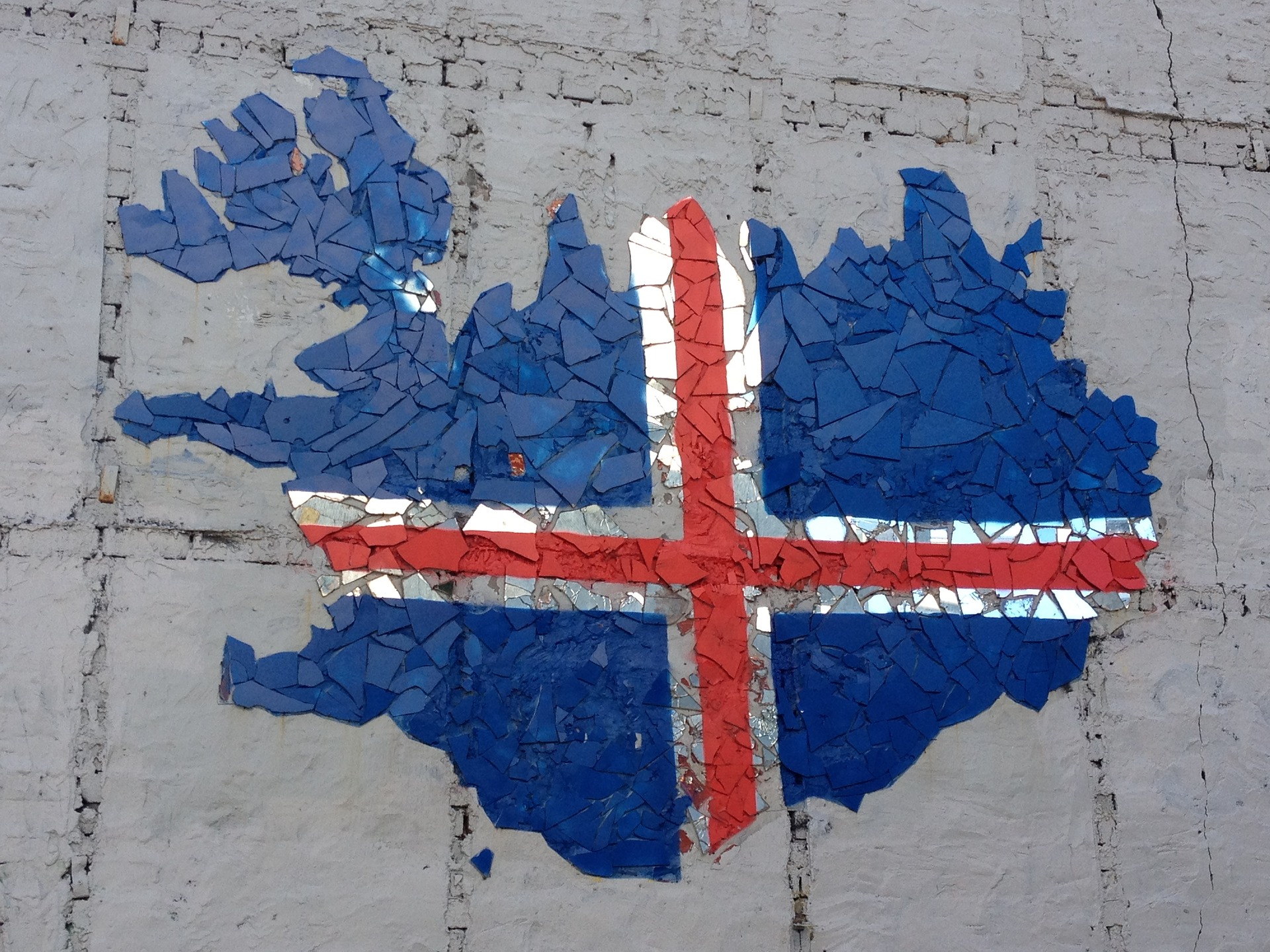 Photo: Street art in Reykjavik - the Icelandic flag
Photo: Street art in Reykjavik - the Icelandic flag
The Icelandic culture is strongly related to its history. And Icelanders are now really attached to all art forms.
You will be surprised to see so many art events, artists, concerts, or galleries there are in Reykjavik. The thing is that art is not developed only in the capital area, but also all around the country!
You'll be amazed to stumble upon a museum in the middle of nowhere in Iceland!
It is said that 1 out of 10 Icelanders will publish a book in their life. Amazing isn't it? But the most known is probably the Icelandic sagas.
These books relate to the story of settler families during the birth of Iceland.
One of the most famous writers is Snorri Sturluson, author of a lot of sagas. His work is today very important for the knowledge of Norse mythology.
FOOD
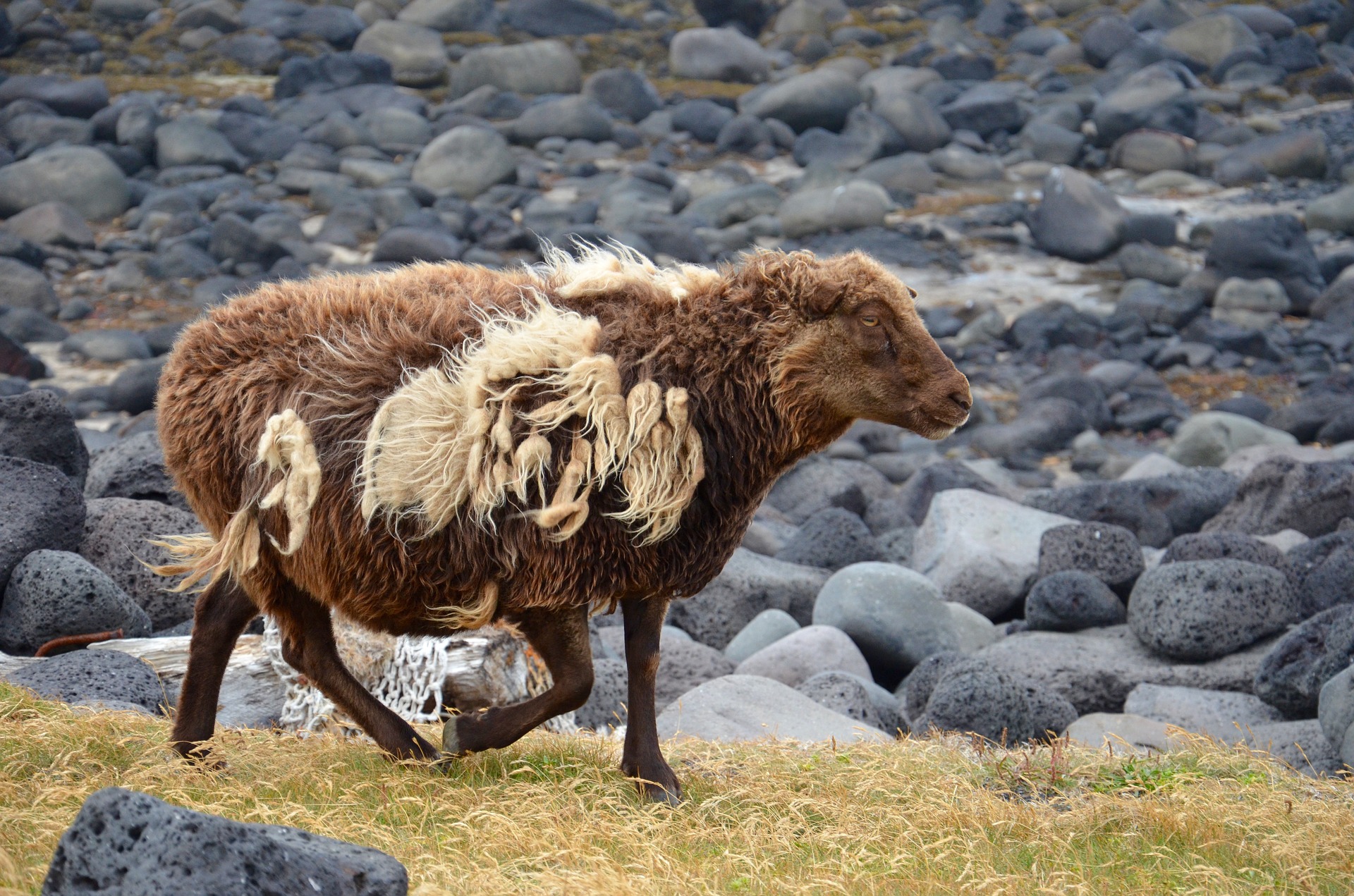 Photo: Icelandic sheep enjoying life before being eaten...
Photo: Icelandic sheep enjoying life before being eaten...
Icelandic food is clearly not for weak stomachs.
Here is what you can try:
- Sheep’s head
- Fermented shark
- Ram testicles
Those are some things that you can try while traveling in Iceland. But Icelanders do not really eat these things anymore.
Icelandic traditional cuisine is composed of a lot of sheep meat, lamb meat, and also fish obviously, but not only...
Those examples are some of the best dishes you can find in Iceland:
- Lamb soup
- Dried fish with butter
- Dark rye bread
- Icelandic ice creams
Animals are really important in Icelandic culture: Sheep, fish, whales, and also the famous Icelandic horse, we talk about this latter here.
We also make one of the best yogurts on earth, called skyr. Just try it to believe it. To learn more about Icelandic food, it's right here.
RELIGION
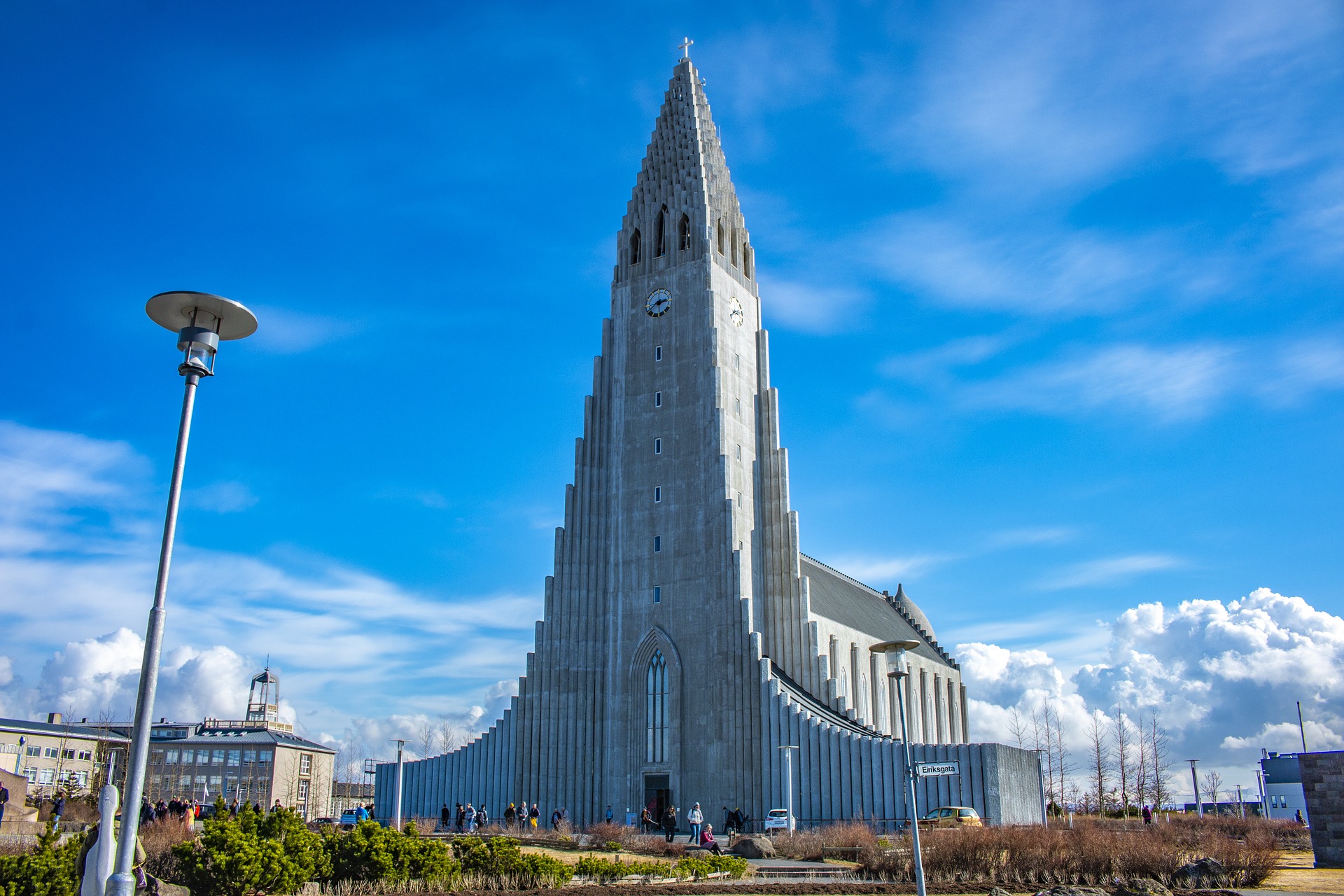 Photo: Hallgrimskirkja in Reykjavik - The biggest church and highest building in Iceland
Photo: Hallgrimskirkja in Reykjavik - The biggest church and highest building in Iceland
In the old days, the religion of the Icelandic settlers was the northern Germanic religion also called Old Norse religion.
It is widely spread in Scandinavian countries. Odin, Thor, Loki and Heimdall, and many others were the gods of these people.
Still, Norse mythology is a great part of Icelandic culture and Icelanders are highly proud of this heritage. But now the state religion in Iceland is Lutheranism.
Lutheran State Church is the first church in the country and professes the Lutheran faith. Around 80% of all Icelanders are members of this church. This makes Iceland a country where religion is still very important.
Also, a lot of churches can be found all around the country. Most of them are small wooden churches, located in small towns. But some are more imposing, as Hallgrimskirkja in Reykjavik, or Akureyrarkirkja in Akureyri.
ICELANDIC PEOPLE
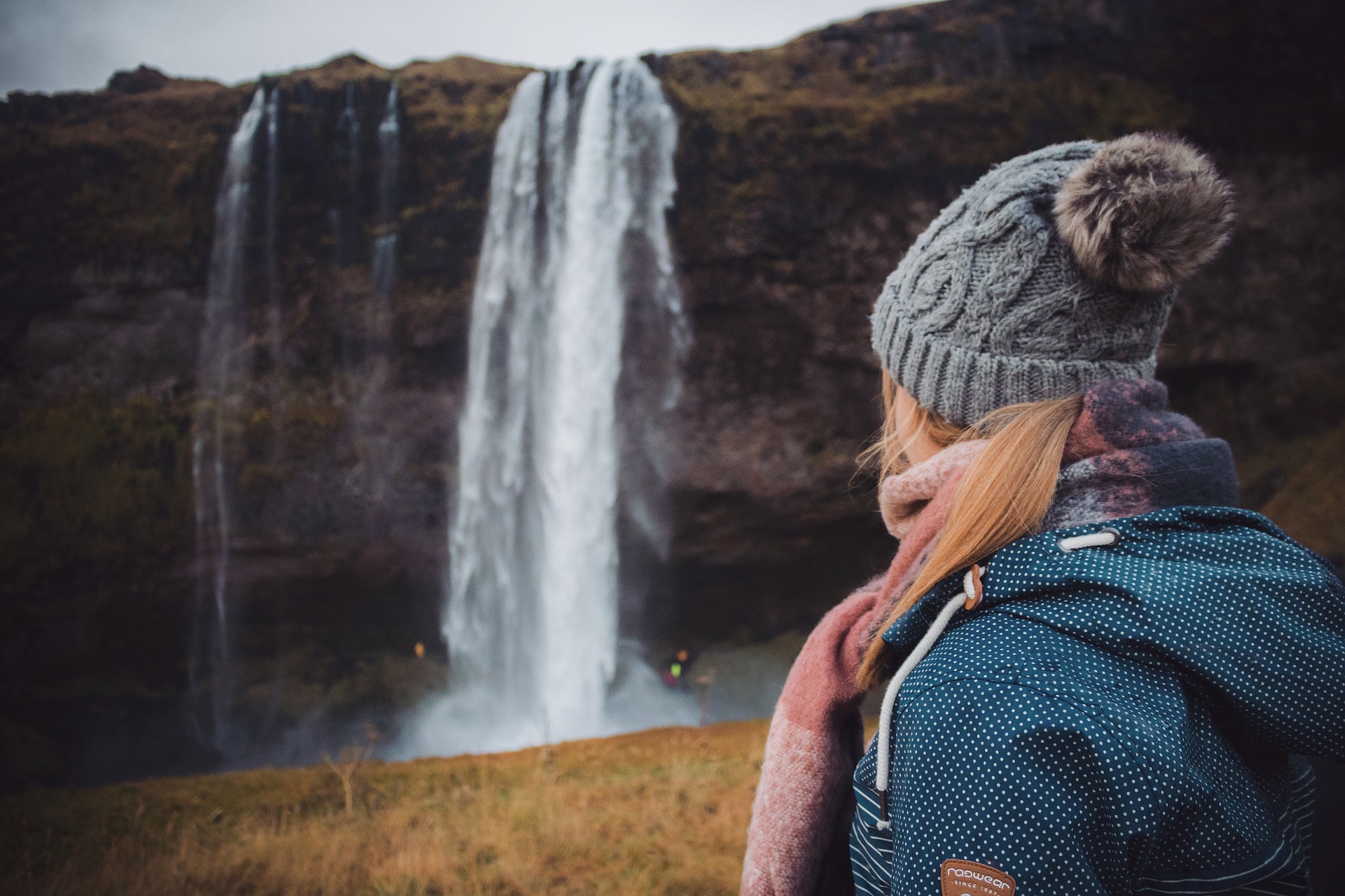 Photo: An Icelandic woman looking at Seljalandsfoss
Photo: An Icelandic woman looking at Seljalandsfoss
In Iceland, people may seem cold and rude at first sight. And it can be hard for some foreigners to have contact with locals. But as soon as you break the ice, these people will become one of the warmest and most welcoming.
They are also known to be one of the happiest nations in the world. And their happiness is not related to the money they earn, but rather to their relationship with others. They trust and support each other, in both good and bad times.
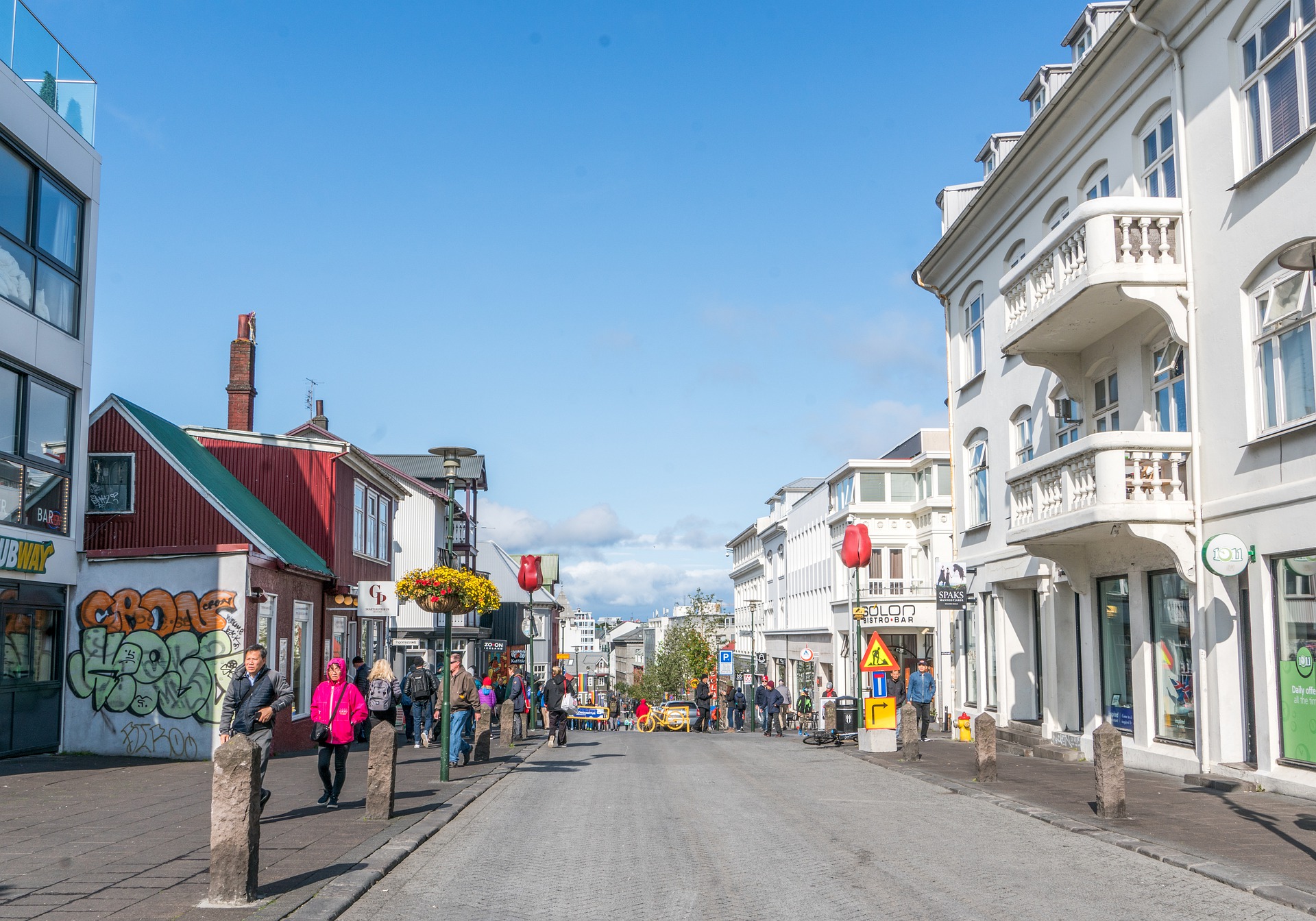 Photo: Iceland population - People walking in Bankastraeti, Reykjavik
Photo: Iceland population - People walking in Bankastraeti, Reykjavik
This way of coming from their history and environment. They share values from the past and Iceland can be a tough place to live. Early Icelanders had to be united if they wanted to survive.
The Icelandic population is also one of the smallest, only 364 000 people live here. For a population density of 3 per Km².
ICELAND LANGUAGE
What language is spoken in Iceland? Well, no surprises here, Icelandic people speak in… Icelandic!
An insular language
Icelandic is a North Germanic language, and an Indo-European language. It is related to other European languages such as Norwegian, Finnish, Swedish, and Danish, but also English and German. Its written form is really close to Faroese and Western Norwegian.
Icelandic grammar, on the other hand, is close to German grammar. And it has been so little changed that Icelanders can actually read writings in Old Norse from the 10th century.
Just have a quick thought about it, could you even read a text of your language that is 200 years old?
The deaf community in Iceland
Before the early 20th century, deaf people were sent to Denmark to study and use the danish sign language. Today, deaf people in Iceland use the Icelandic sign language. It is a bit different from the danish one, from which it takes its roots.
The alphabet
The Icelandic alphabet is slightly different from the alphabet known by English, French or Spanish speakers. It is composed of 32 letters with one sound for each.
Just watch the video below to truly understand how Icelandic sounds unique, you won’t even believe your ears:
Icelandic for dummies:
Do you want to learn a bit of Icelandic before coming? No worries mate, here are the main sentences you’ll need for your trip:
|
ENGLISH |
ICELANDIC |
|
Hello |
Halló |
|
Good morning |
Góðan daginn |
|
Good afternoon |
Góðan daginn |
|
How are you? |
Hvernig hefurðu það? |
|
Goodbye |
Bless |
|
Yes |
Já |
|
No |
Nei |
|
Thank you |
Takk fyrir |
|
What’s your name? |
Hvað heitir þú? |
|
My name is... |
Ég heiti... |
|
Nice to meet you |
Gaman að hitta þig |
|
May I have a beer, please? |
Má ég fá mér bjór vinsamlegast? |
|
How much is it? |
Hversu mikið er það? |
If you have trouble with saying it, no worries, Icelandic people have a very good English level. So you should not have any problem to talk with them. Even young kids can speak English!
COST OF LIVING IN ICELAND
Here is the big question, money: Is Iceland an expensive country?
It actually is one of the most expensive countries in Europe. To give you an idea of that, here are a few examples of prices in 2020:
|
FOOD |
QUANTITY |
PRICE |
|
Potatoes |
1 kg / 2 lb. |
Approx: ISK 430 EUR 2.72 USD 2.94 |
|
Tomatoes |
1 kg / 2 lb. |
Approx: ISK 590 EUR 3.73 USD 4 |
|
Apples |
1 kg / 2 lb. |
Approx: ISK 415 EUR 2.62 USD 2.84 |
|
Eggs |
12 |
Approx: ISK 755 EUR 4.77 USD 5.16 |
|
Milk |
1 litre / 1 qt. |
Approx: ISK 157 EUR 0.99 USD 1.07 |
|
Beer in a bar |
Pint |
Approx: ISK 1200 EUR 7.59 USD 8.21 |
If you want to save a bit of money, the cheapest “supermarkets” are Bonus. You can find them all around the country.
If you have to buy some food or hygiene products during your trip, you can also go to Nettó, Hagkaup, Krónan. You can also find other independent groceries shops all over the island. Groceries stores called "10-11" are opened 24/7, but they are also more expensive.
| PRICES IN MAY 2020 | ||
|
GAS |
VOLUME |
PRICE |
|
95 Octane Gasoline |
1 liter |
From ISK 183.40 to ISK 210.90 From EUR 1.16 to EUR 1.33 From USD 1.25 to USD 1.44 |
|
Diesel |
1 liter |
From ISK 181.30 to ISK 208.40 From EUR 1.15 to EUR 1.32 From USD 1.24 to USD 1.42 |
If you’re looking for the best gas prices, you will definitely find them at Orkan, Atlantsolía, and ÓB. Also, some small towns have a higher price of petrol due to their location. So it is cheaper in bigger towns.
But the prices are always changing so it may be true later. To get the updated prices of gas, just go to this link.
|
CLOTHING AND PERSONAL CARE |
PRICE |
|
1 pair of sports shoes |
Approx: ISK 17 500 EUR 110 USD 120 |
|
1 summer dress |
Approx: ISK 7 300 EUR 46,10 USD 50 |
|
Standard men’s haircut |
Approx: ISK 6 800 EUR 43 USD 46.50 |
|
Antibiotics (1 box/12 doses) |
Approx: ISK 1 600 EUR 10.10 USD 11 |
ECONOMY
Iceland has a small economy with one of the lowest GDPs in the world. But as it is for other small countries, the GDP per person is high.
It is the highest in the world with a little around 70 000 USD per person.
The economy of Iceland is based on 4 main activities:
- Tourism
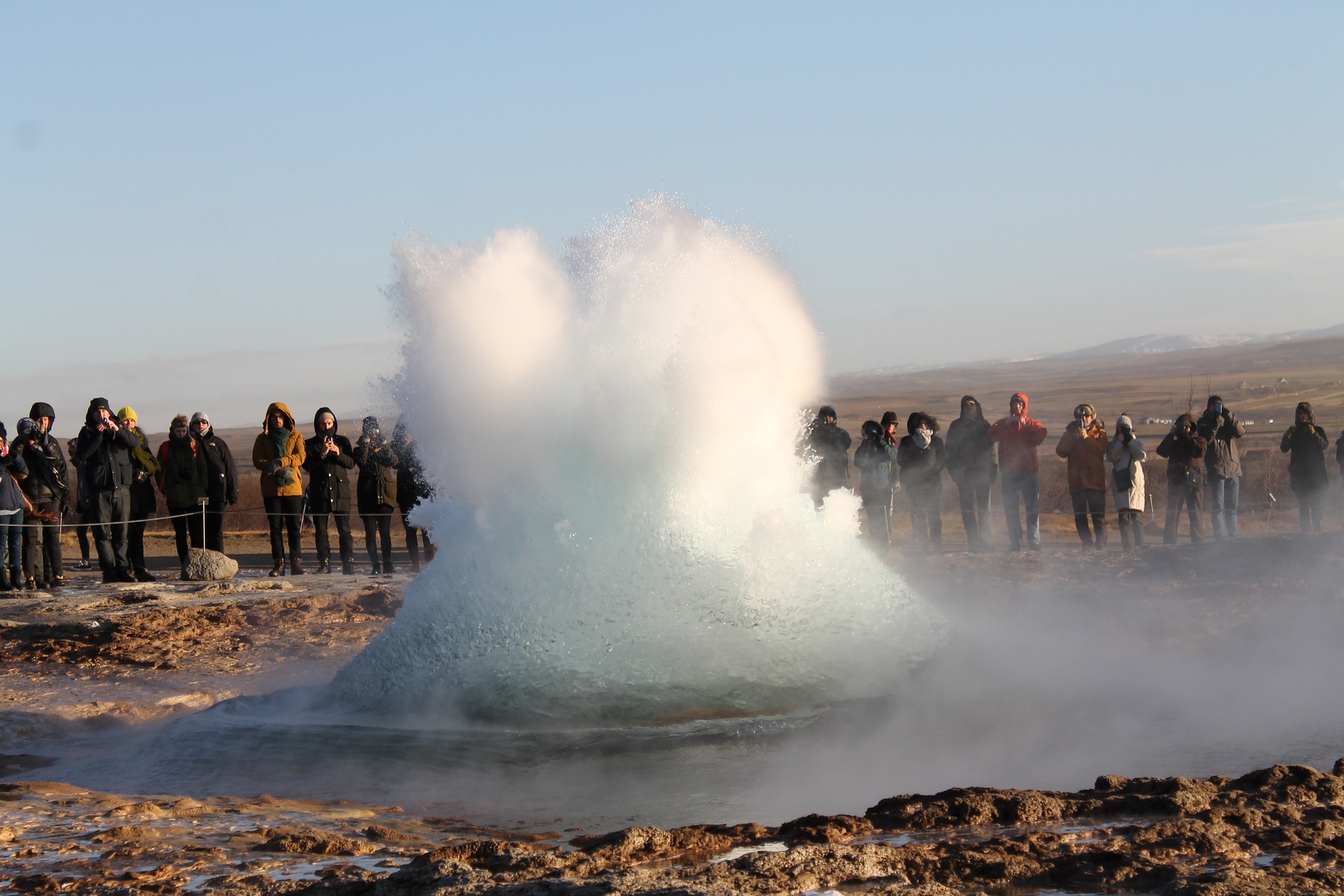 Photo: Tourists enjoying Geysir
Photo: Tourists enjoying Geysir
Tourism in Iceland exploded in the last few years. And is now one of the biggest sources of income in the country.
Why this boom in tourism?
These days, people really want to get closer to nature. And our country is just the perfect place for that.
Also, the eruption in 2010 of Eyjafjallajökull made Iceland very famous in the world. Since this year, tourism has almost always grew up year after year.
- Green energies
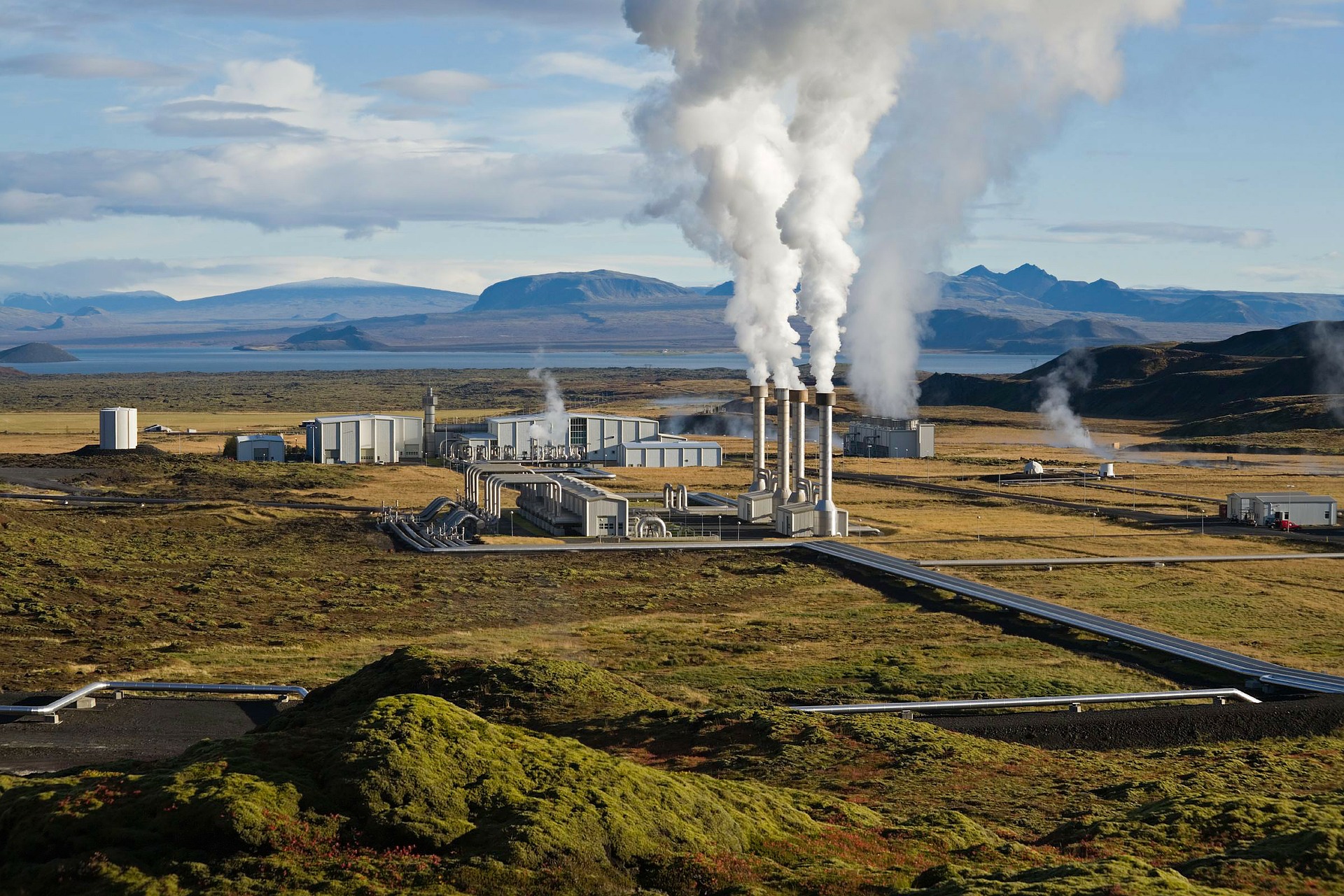 Photo: A geothermal plant in Iceland - transforming the warmth of the underground into electricity
Photo: A geothermal plant in Iceland - transforming the warmth of the underground into electricity
Thanks to its water and geothermal activity, Iceland makes enough electricity for its domestic consumption, mainly hydropower. For a few decades, Iceland invested in infrastructures in order to make its own green energy.
Today, the efforts are paying off, and Iceland can produce enough green energy for its domestic use. Making it probably the greenest country in electric production and consumption.
- Aluminum
Iceland is an island where aluminum can be found in large quantities.
A few companies exploit this resource mainly for exportation.
This industry consumes more than 70% of the electricity made by the country.
- Fishing
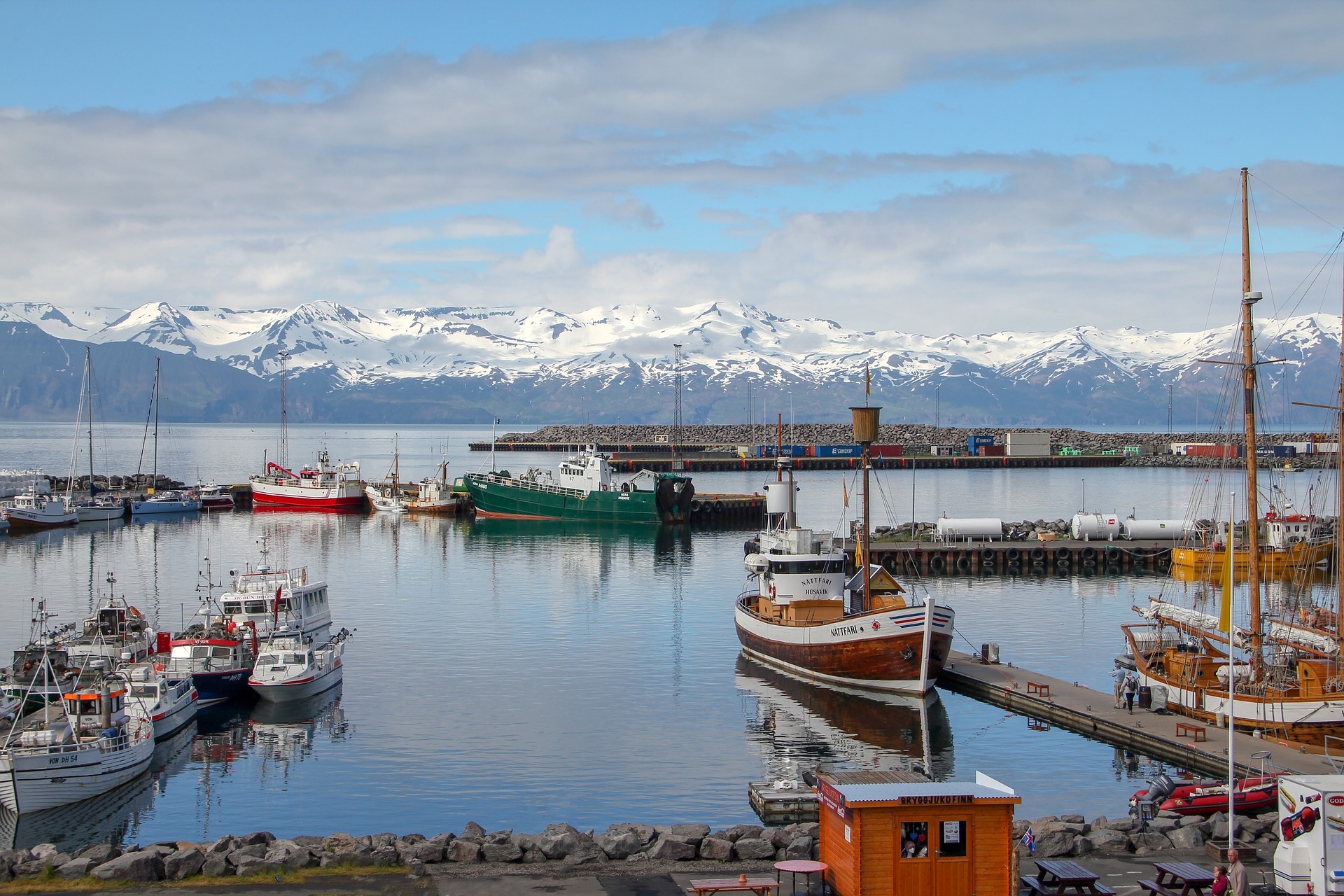 Photo: The fishing harbor of Husavik in North Iceland
Photo: The fishing harbor of Husavik in North Iceland
It’s not surprising that the fishing industry carries the Icelandic economy. Iceland is surrounded by seas that are full of fish.
The country has always been a place where fishing is in the center. From the settlers, who used to fish to live, to today.
Now the techniques are more industrial. However, the Icelandic Marine Research Institute gives advice about quotas to the government. The main goal is to protect the species and the ocean’s natural resources.
Iceland fishes mainly cod, which is consumed here but also exported. Also other species such as herring, golden redfish, haddock, and many others...
ICELAND CURRENCY
The Icelandic currency is named Króna or Íslenska Krónan and is recognized by its code: ISK. The name “króna” has the same origin as the Scandinavian currencies, the Swedish krona, the Danish krone, and the Norwegian krone.
To give you an idea, 1 euro is worth around 155 ISK, and 1 dollar is around 140 ISK. But this currency is very volatile, and the exchange rate is always moving, sometimes a lot.
Icelandic Coins
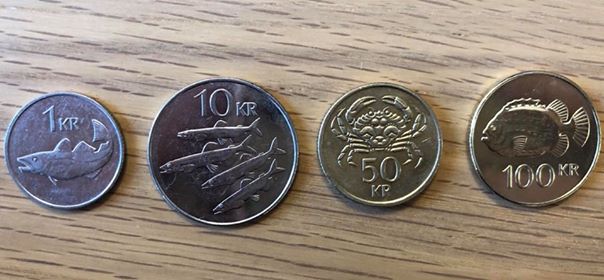 Photo: Iceland money - Coins
Photo: Iceland money - Coins
- ISK 1
- ISK 5
- ISK 10
- ISK 50
- ISK 100
Icelandic Banknotes
- ISK 500
- ISK 1000
- ISK 2000
- ISK 5000
- ISK 10000
Who are people on the ISK banknotes?
ISK 500: Jón Sigurðsson
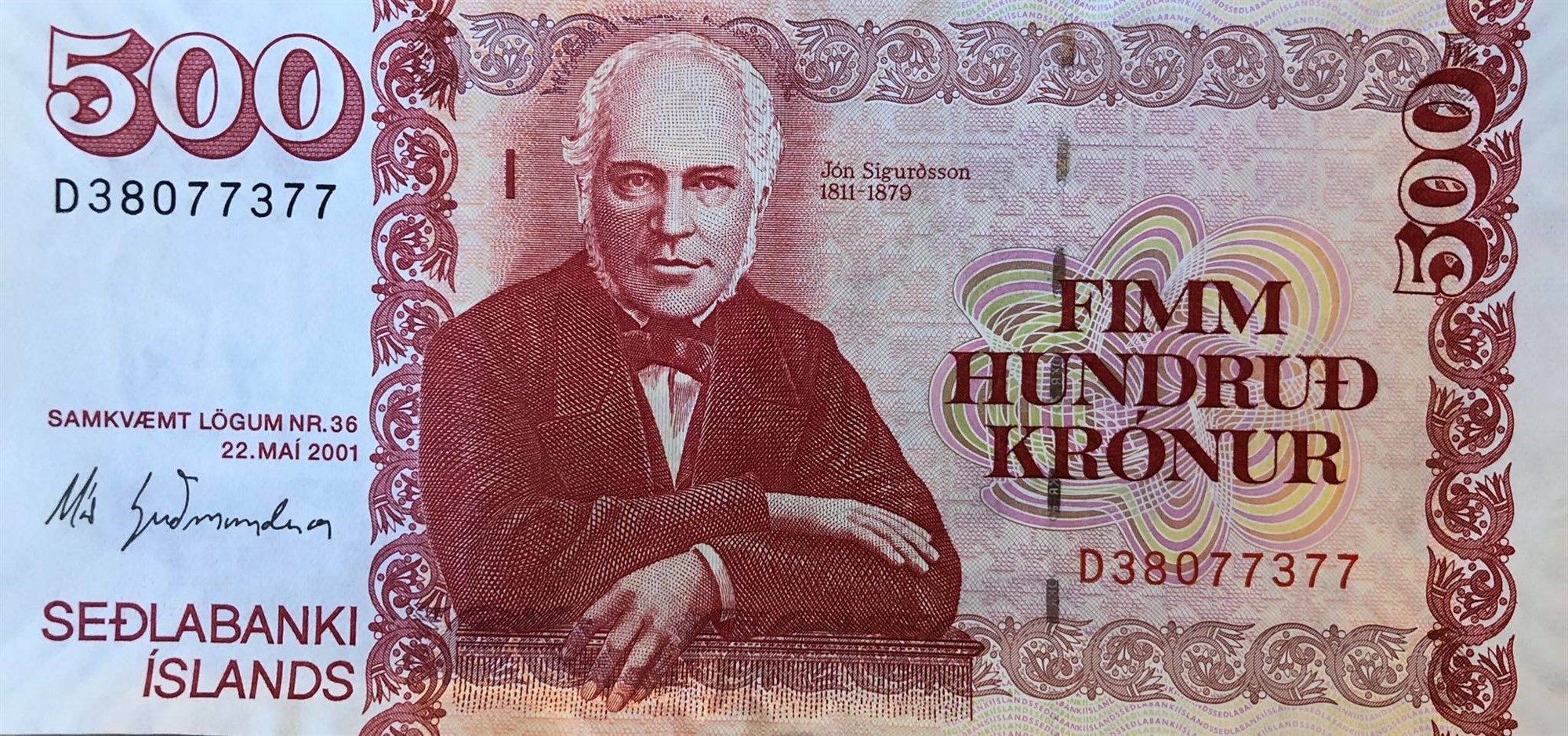 Photo: ISK 500 banknote
Photo: ISK 500 banknote
Jón Sigurðsson was the leader in the fight for Iceland’s independence.
ISK 1,000: Brynjólfur Sveinsson
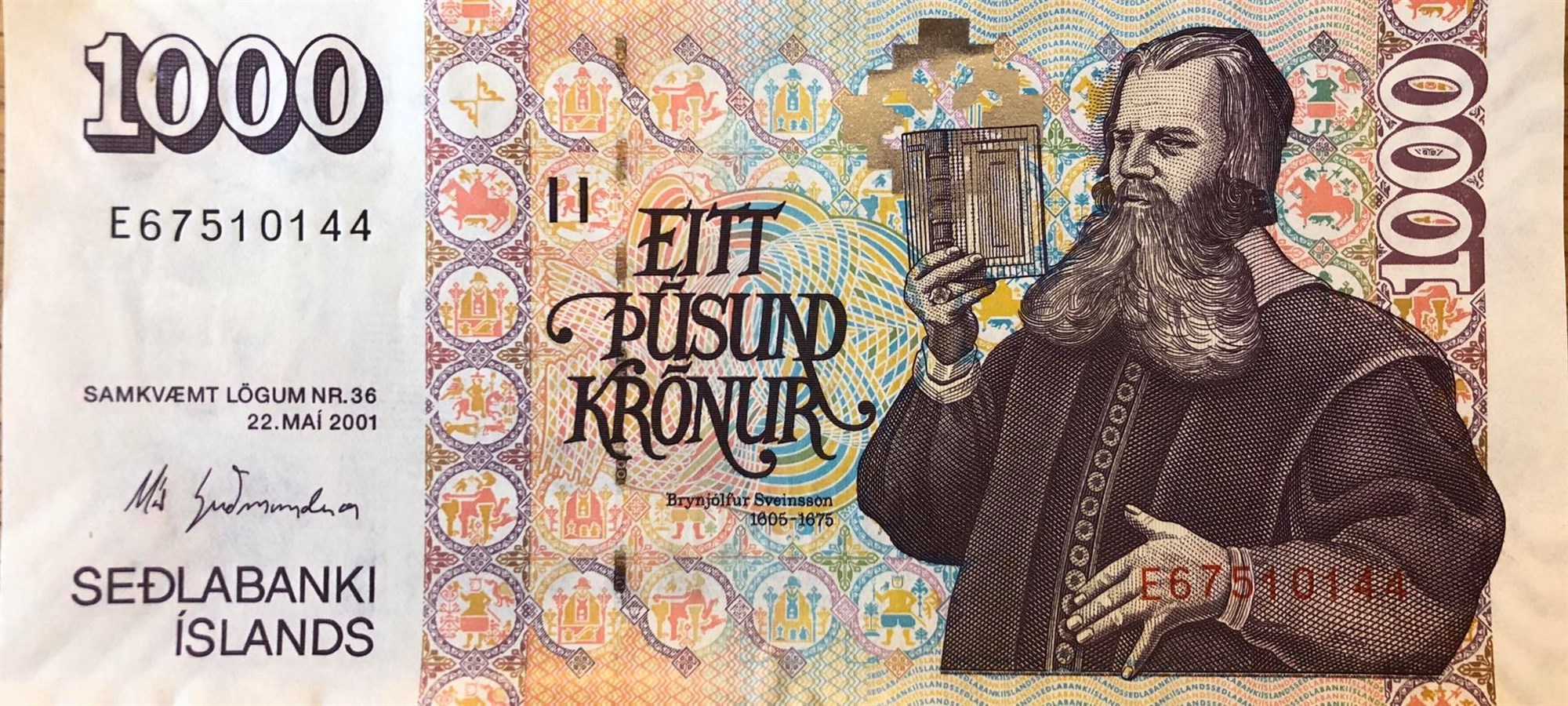 Photo: ISK 1000 banknotes
Photo: ISK 1000 banknotes
He is famous for his work on Norse Mythology.
ISK 2,000: Jóhannes Kjarval
One of Iceland’s most popular Icelandic painters.
ISK 5,000: Ragnheiður Jónsdóttir
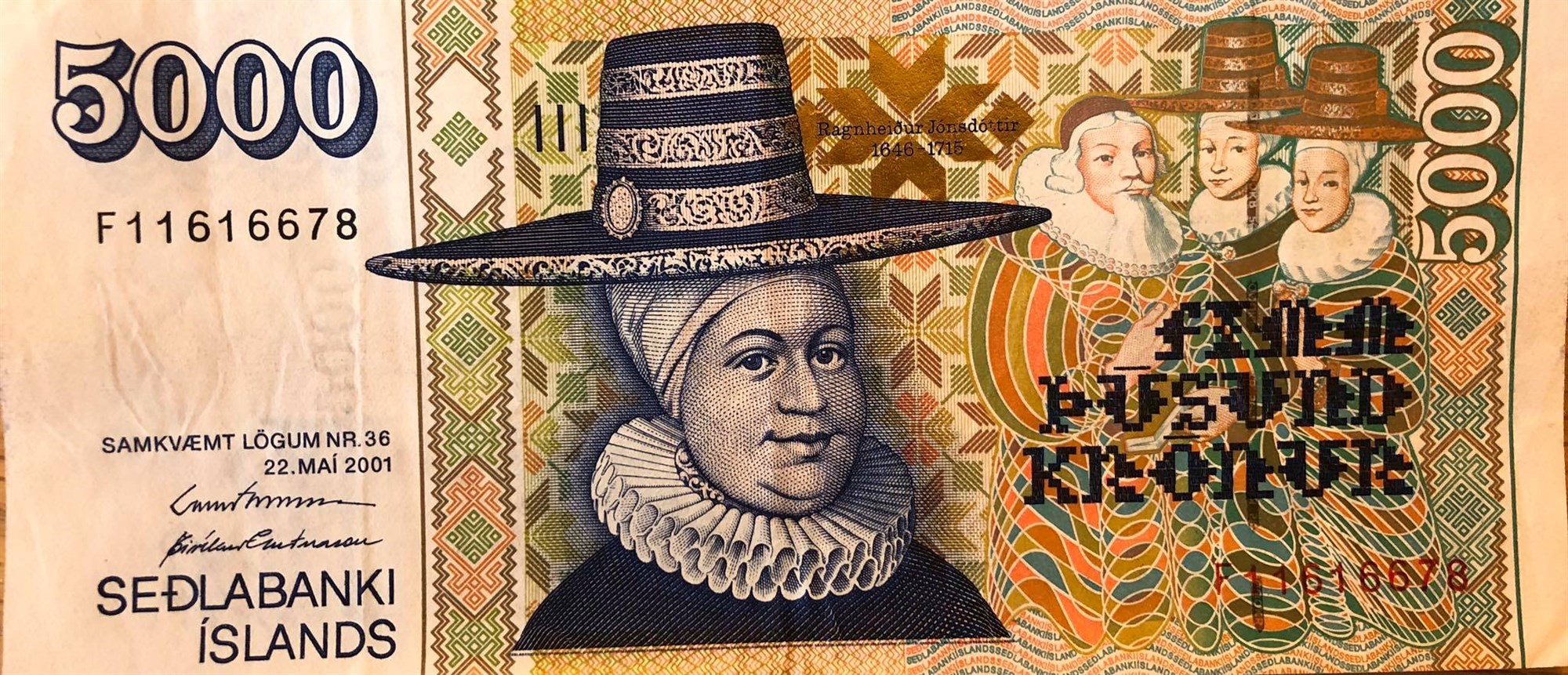 Photo: ISK 5000 Banknote
Photo: ISK 5000 Banknote
A talented seamstress who actively taught her skills anywhere she could.
ISK 10,000: Jónas Hallgrímsson
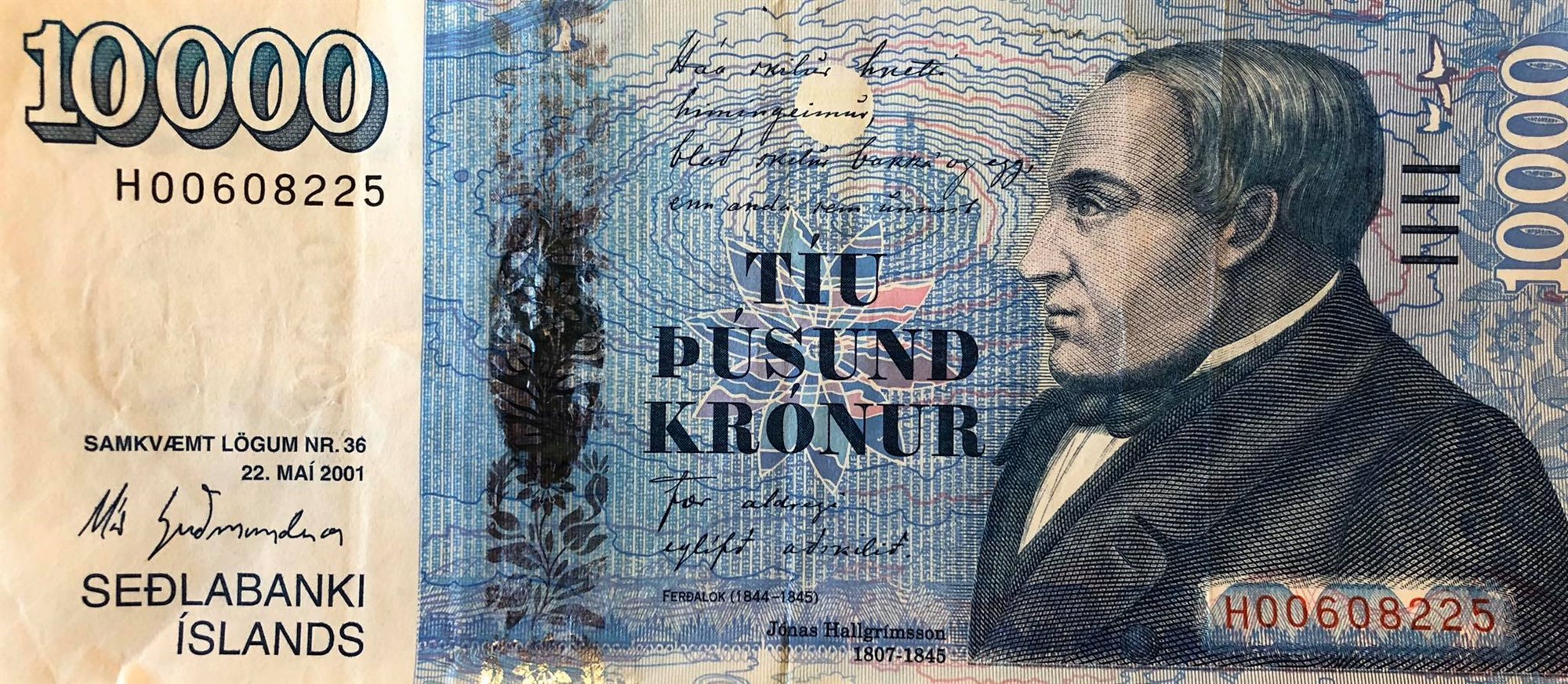 Photo: ISK 10 000 Banknote
Photo: ISK 10 000 Banknote
Natural scientist and one of our most beloved poets, writer, and translator
If you're coming to Iceland and don't want to use cash, no worries. Every shop, or almost, accept payments via credit cards.
ICELANDIC GOVERNMENT
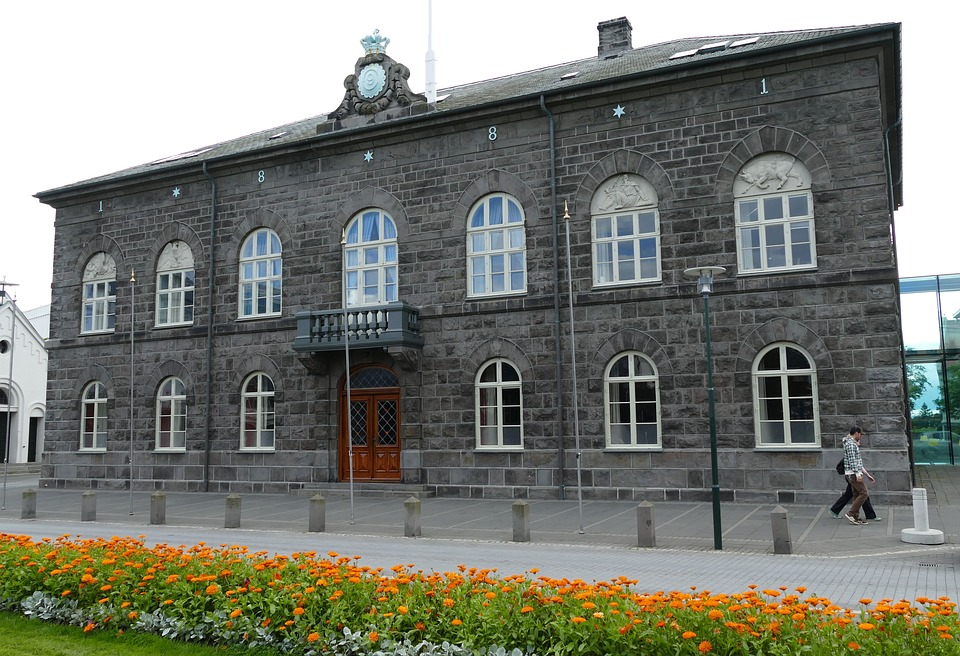 Photo: Reykjavik parliament
Photo: Reykjavik parliament
Iceland is a democratic republic. The president is the head of state, while the prime minister is the head of the government. The executive power is held by the Government. While legislative power is shared between government and parliament.
The parliament is called the "Althingi", and as we said before, is the oldest still ongoing parliament in the world.
The president in Guðni Th. Jóhannesson. He is in charge since 2016. Katrín Jakobsdóttir is the Iceland prime minister since 2017. Katrín is a member of the "Left-Green movement".
Iceland has different treaties with Denmark and Norway among others. The country is also a member of the United Nations and of NATO since the beginning.
SAFETY IN ICELAND
Iceland is one of the safest countries in the world. According to the National Police, the crime rate continues to be lower than in other similar countries.
|
Safest countries in the world |
||
|
Rank |
Country |
Safety Score |
|
1 |
Iceland |
6.16 |
|
2. |
Switzerland |
07.01 |
|
3. |
Finland |
07.04 |
|
4. |
Portugal |
07.07 |
|
5. |
Austria |
07.08 |
Why?
The low level of crime and very low level of violent crime is due to the high standard of living. Thanks to that, there is a lack of tension between social and economic classes.
The population also has strong social attitudes against criminality, this helps to keep the rate low.
There is also a high level of trust in the police and a highly educated police force.
Road Safety and Road Conditions:
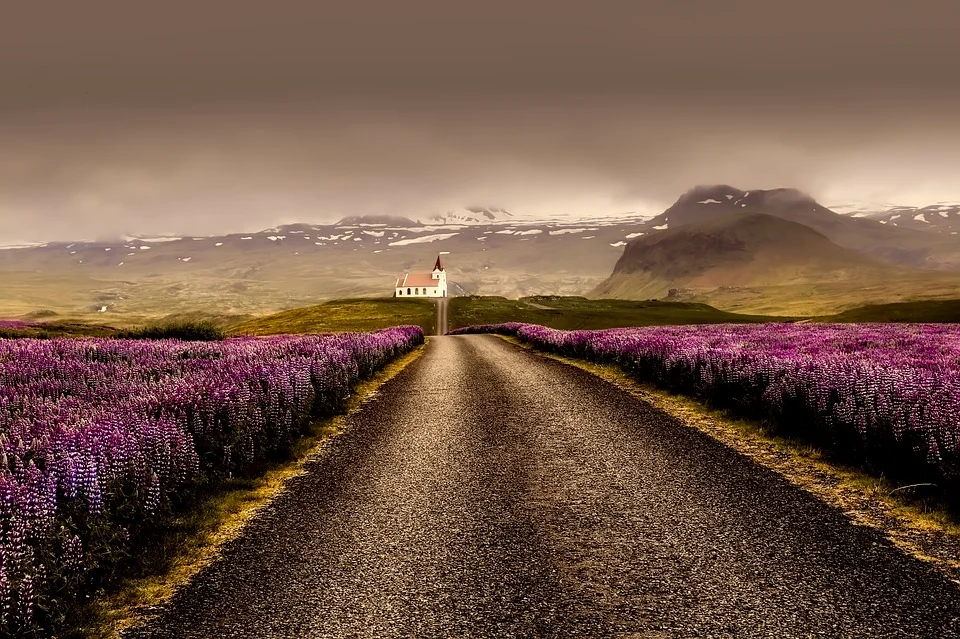 Photo: Icelandic Road during summer
Photo: Icelandic Road during summer
Iceland has a modern highway system that was not made for speed. Many roads outside of the main highways are not paved.
The most dangerous when driving outside of these roads is:
- single-line bridges
- unexpected animal crossings
- poor surface maintenance
You also have to be careful with the Icelandic weather, which can be really tough, especially during wintertime.
Public transports
As a lot of people have their own car, demand for public transport services stays low. Public transportation is relatively poor. However, these are effective and safe services that are provided in the main urban areas.
TIME IN ICELAND
What time is it in Iceland right now?
Iceland is currently in the Greenwich Mean Time (GMT) time zone. Clocks do not change in Iceland.
FUN FACTS ABOUT ICELAND
1 - Icelandic names
In Iceland, unlike most other Western countries, Icelandic people don’t use family names. Instead, the surname is made up with the father's name ending by:
- "son", for a man, which means... "son" (congrats mate you got it).
- "dóttir", for a woman or a girl, which means daughter.
2 - One cannot take up the spouse's last name upon marriage
Icelandic women don't take their husbands' surname when they get married because it doesn’t make any sense.
A woman cannot just become somebody else's son. Icelanders then usually use their middle names as well to avoid mix-ups with people.
3 - When naming a child, one has to stick to a limited list
When choosing a name, the parents have to stick to a list of legal first and middle names. There are about 1,712 male and 1,853 female given names on the list.
Parents who want to choose a name that is not on the list have to send a special request.
4 - To go on a date, Icelanders prefer to go to weird places
Icelanders have a good social life since there are more than half of the population lives around Reykjavik.
So they are very likely to meet people that they know. So, to go on a date, Icelanders prefer weird places where they are unlikely to meet anyone.
5 - Iceland Is so Small There's an App That Keeps Icelanders from Dating Their Relatives
Iceland’s population is around 330,000 people with more than two-thirds of the population living around Reykjavik.
So that's a lot of people in a small area. And with little immigration over the last century, it comes as no surprise that most Icelanders are closely related.
To resolve this problem, Icelanders have developed a mobile application called Íslendinga-App. The name is a reference to the Íslendingabók or The Book of Icelanders. This book lists (almost) all Icelandic people since the 11th Century. It is like a huge family tree.
How does it work?
In the app, you only have to type in a name to see results. If you are already on a date, you can just bump your phones together to find out if you are related. What a romantic moment. The developers have named this feature the “Incest Spoiler” with the slogan: “Bump the app before you bump into bed.”
6 - In 2010 Iceland banned strip clubs
Iceland banned all strip clubs and is becoming a world leader in feminism. It is the first country that closes down its sex industry.
7 - Beer was banned in Iceland until 1989
Iceland went through a prohibition of beer which began in 1915 and ended in 1989. Now, every March 1st, the country celebrates “Bjórdagurinn” or “Beer Day” commemorating the end of a 74-year beer ban.
8 - Babies in Iceland are routinely left outside to nap.
 Photo: One of our Kuku team member's baby
Photo: One of our Kuku team member's baby
For generations, Icelandic babies have napped outside in freezing temperatures. If they're not on the street, they're on balconies or in the backyard.
Most Icelanders believe that their children take longer and better naps when they sleep outside. Mainly because of the cold, it helps babies to have a better and stronger immune system. But also because this way they are not disturbed by noises from inside the house.
9 - Iceland produces Bananas
Although Iceland is well known for fishing, tourism, and aluminum production as the mainstays of its economy.
But the production of vegetables and fruits in greenhouses is a growing sector. Until the 1960s this included commercial production of bananas.
TRAVELLING IN ICELAND
Yes yes, you can travel in Iceland (between two volcanic eruptions), and you'll surely have the best time of your life!
If you want to get a full overview of the best seasons to go to Iceland, you can read this article.
SUMMER
What to bring during summer:
- Waterproof hiking shoes.
- Waterproof jacket.
- Layers of short- and long-sleeved shirts and sweaters.
- Hiking pants and rain pants.
- Gloves, buff, winter hat.
- Sleep mask.
- Swimsuit, towel, and flip-flops.
- Reusable water bottle and a thermos
Is summer a good time to travel to Iceland?
It sure is, there are plenty of things to do in summer in Iceland, especially visiting the Golden Circle. Go whale watching, hiking, go to meet puffins, here are some examples of what you can do during the warmer months:
Midnight sun
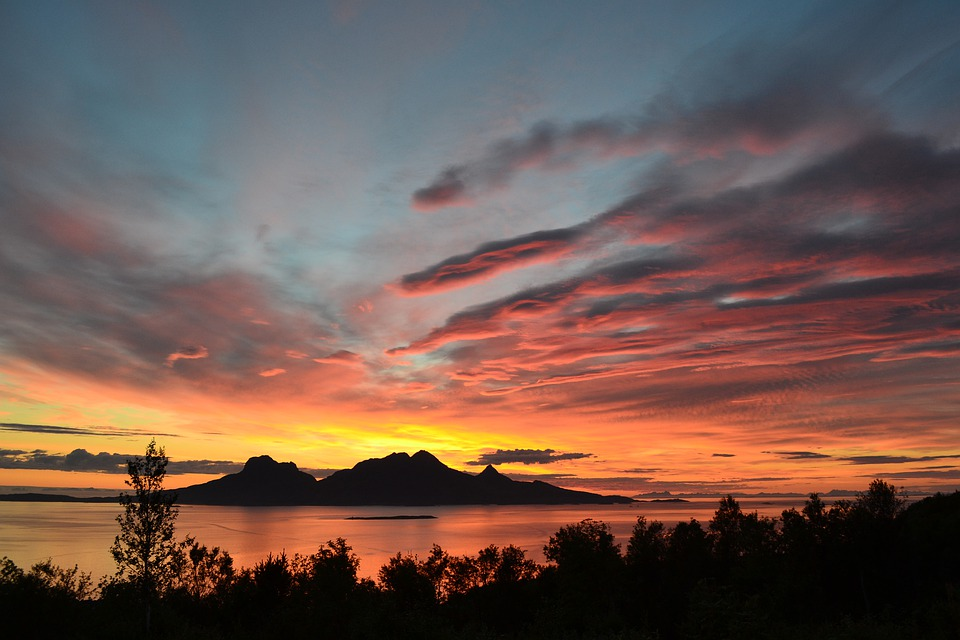 Photo: Midnight sun in Iceland
Photo: Midnight sun in Iceland
In the summer months, much of Iceland sees around 21 hours of daylight. The long days and warm nights make it easier to travel.
Festivals
 Photo: Icelandic festivals
Photo: Icelandic festivals
Summer is the festival season in Iceland and particularly during the midnight sun. There's a strong tradition of celebrating summer and gathering for a long weekend.
Puffins
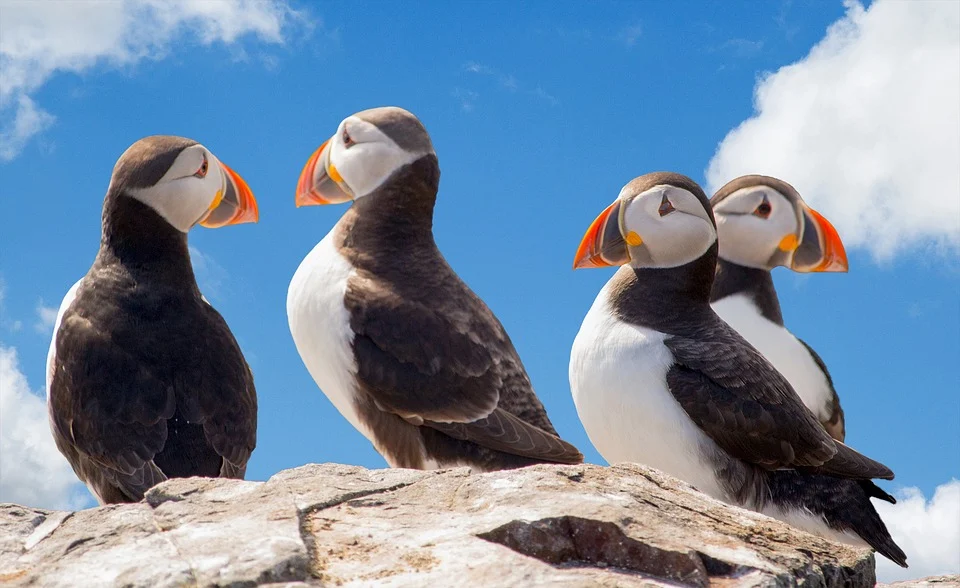 Photo: Cute little puffins
Photo: Cute little puffins
Iceland is home to one of the world‘s largest puffin colonies. These cute birds are of course worth looking out for. The rest of the population can be found in North America.
You can see them between April and August flying around the coasts or islands like the Westman Islands.
WINTER
What to bring during wintertime?
- winter jacket.
- Wool or fleece sweaters.
- Thermal underwear.
- winter pants.
- Wool socks.
- winter boots. ...
- gloves
- winter hat
- scarf.
Is winter a good time to travel to Iceland?
Many people think that summer is better to visit Iceland than winter. We will show you that you are wrong! In fact, there are so many advantages to doing your road trip on the island during winter!
Northern lights
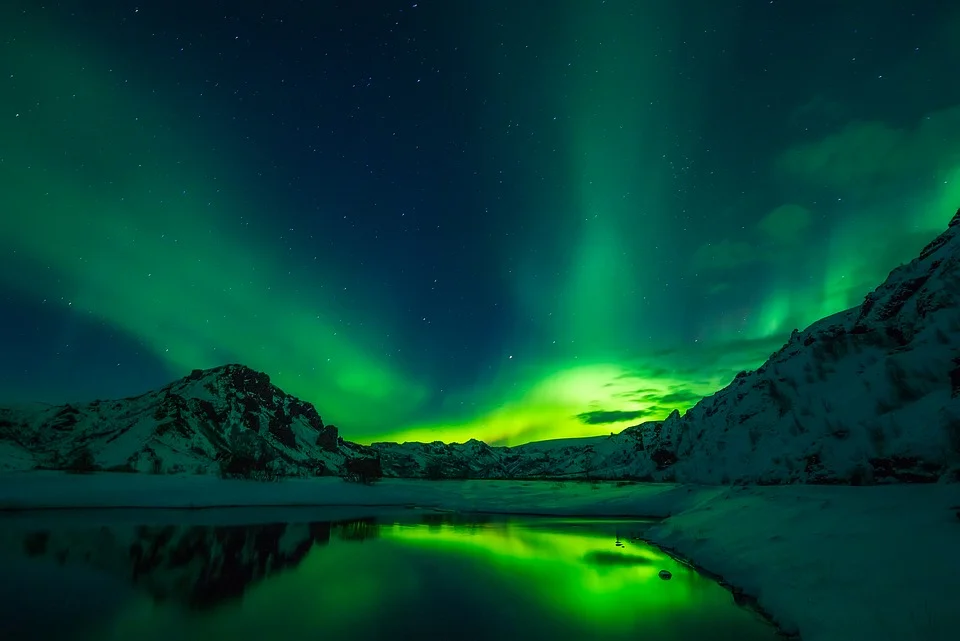 Photo: Northern lights Landscape
Photo: Northern lights Landscape
Traveling to Iceland from fall to spring is the best time if you want to see incredible Northern Lights! It is also the off-season so everything is cheaper and you won’t be disturbed by tourists.
Wintery landscapes
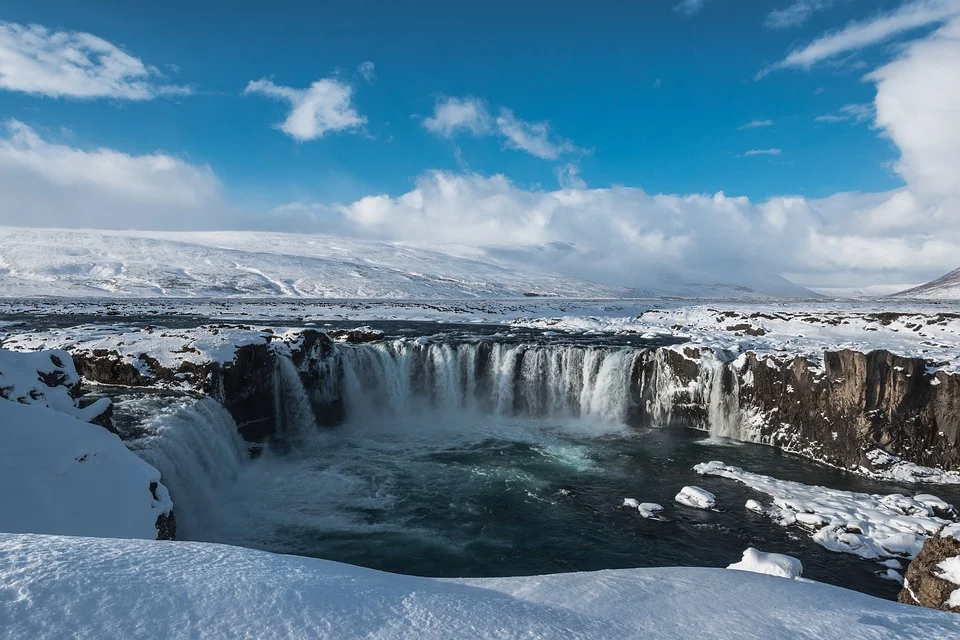 Photo: Godafoss waterfall
Photo: Godafoss waterfall
If you love snow and John Snow, this would be the perfect time for you to travel to Iceland! With the wintery landscapes, you will surely recognize some places that were used to film Game of Thrones.
Off-season
Iceland tourism is really low during winter since it is off-season. So you won't see a lot of tourists which makes your experience unique and different than traveling in summer.
